Vegetables are a staple in the American diet, providing essential nutrients and flavors to meals. However, the presence of pesticides in some of the most consumed vegetables raises concerns about health and safety. This article explores whether the veggies we frequently enjoy are laden with these chemicals.
1. Lettuce
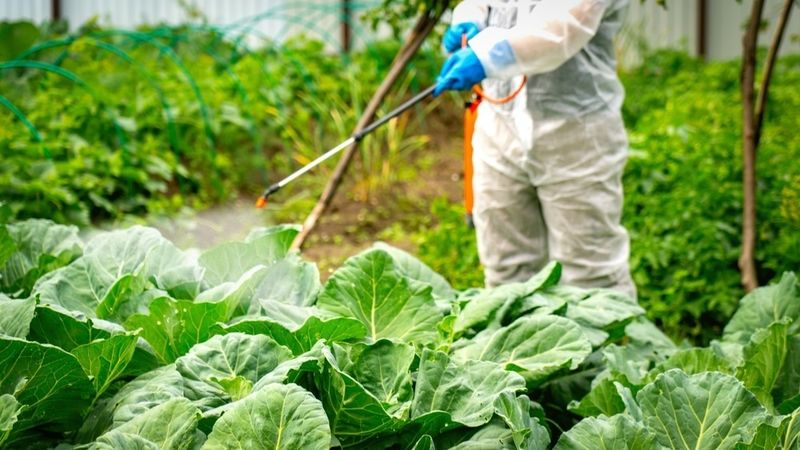
Lettuce, often found in salads across the U.S., can be a source of pesticides. With its leafy structure, it tends to absorb chemicals used in farming. One might wonder how these substances affect our health. Numerous studies have highlighted residues on this popular veggie.
Its versatile use in sandwiches and wraps makes it a household staple. Farmers aim for lush, green growth, sometimes resorting to chemical aids. This commitment to perfect produce can lead to unintended pesticide presence.
For those concerned, organic varieties offer a way to enjoy this leafy green with peace of mind.
2. Spinach

Spinach, known for its nutrient density, is beloved by many. Its rich iron content makes it a popular choice. However, with health benefits come concerns about pesticide residues, which are often detected.
This leafy green’s delicate nature requires careful farming. To ward off pests, some farmers rely on chemicals. Such practices can introduce unwanted residues into the consumer’s diet.
Opting for organic spinach may reduce exposure to these chemicals. For a safer choice, consumers often turn to local farmers markets, where organic options abound.
3. Potatoes

Potatoes, a comfort food for many, often undergo pesticide exposure. These tubers absorb substances from the soil, raising questions about safety. Their widespread use in fries and stews highlights their importance in American diets.
Farming techniques aim to boost yield, sometimes using chemicals to deter pests. This practice can lead to residual pesticides in harvested crops.
Choosing organic potatoes may lessen chemical intake. Advocates encourage consumers to wash thoroughly to minimize residue. Potatoes remain a beloved staple, with mindful choices enhancing their safety.
4. Tomatoes

Tomatoes, bright and juicy, grace many a dinner table. They’re loved for their versatility in dishes like salads and sauces. Yet, their cultivation often involves pesticides, sparking health concerns among consumers.
Growing tomatoes requires vigilance against insects and diseases. Farmers sometimes turn to chemical solutions, leaving residues that may linger into consumption.
For the cautious eater, organic tomatoes provide an alternative. These options allow enjoyment without the worry of pesticide intake, making them a preferred choice for health-conscious individuals.
5. Sweet Corn

Sweet corn, a summer favorite, finds its way to picnics and barbecues. Its sweet taste is matched by its popularity, but questions about pesticide use remain. Corn’s susceptibility to pests often leads to chemical treatments.
While delicious, this raises concerns about residues. The kernels we enjoy could carry traces of these substances.
For those seeking pesticide-free options, organic sweet corn offers a solution. It’s a way to savor the sweetness while sidestepping chemical concerns. This choice resonates with those prioritizing healthful eating.
6. Bell Peppers
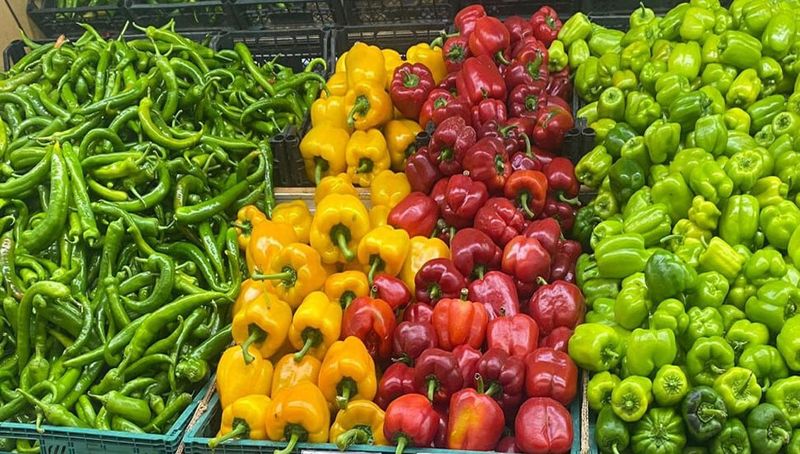
Bell peppers, with their vibrant hues, are a culinary delight. They’re enjoyed raw, roasted, or stuffed. But behind their colorful exterior lies a risk of pesticide residue, commonly found in non-organic varieties.
These peppers require protection from pests and diseases, often via chemical means. The result may include unwanted residues.
Organic bell peppers present a safer alternative. This choice aligns with the desire to maintain health while enjoying flavorsome produce. Consumers often seek these options to avoid the pesticide pitfalls of conventionally grown peppers.
7. Cucumbers
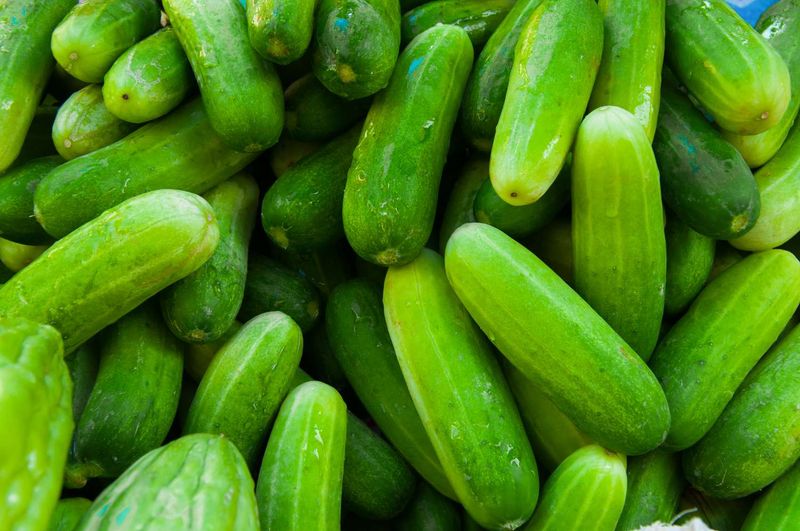
Cucumbers offer a refreshing crunch to salads and sandwiches. Their crisp texture is beloved across the U.S. However, to maintain their appeal, they sometimes receive pesticide treatments.
These chemicals help fend off agricultural pests, but they also lead to residue concerns. Such presence on cucumbers can deter health-conscious consumers.
Organic cucumbers provide an appealing alternative, offering the same crispness without chemical accompaniment. Many choose this path, ensuring their health is prioritized alongside culinary preferences.
8. Onions
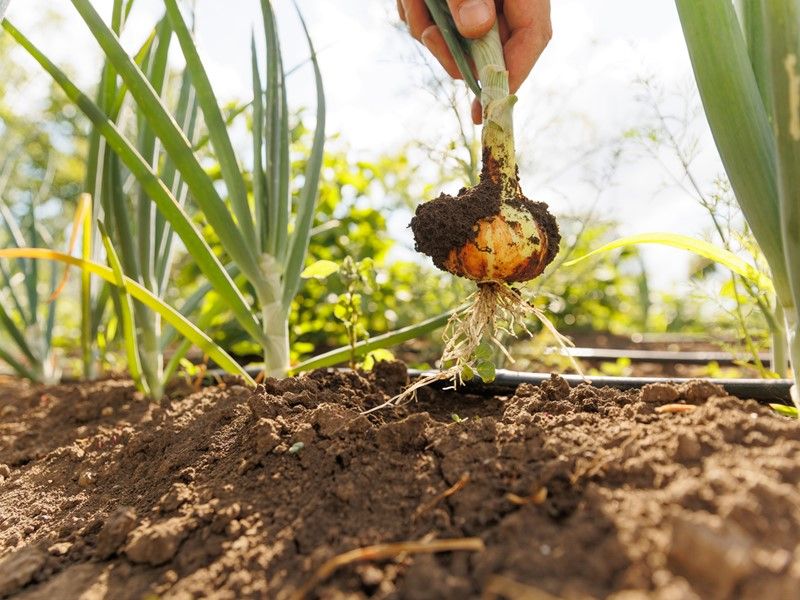
Onions, a kitchen staple, add flavor to countless dishes. Their robust taste makes them indispensable. Yet, conventional farming methods may involve pesticides, leaving residues that concern some consumers.
These bulbs grow underground, absorbing chemicals from treated soils. Though considered low-risk for pesticides overall, caution remains prudent.
Choosing organic onions is a strategy for those wary of residues. They offer the same pungent flavor with reduced chemical involvement. This option aligns with the goal of enjoying meals free from pesticide worries.
9. Carrots
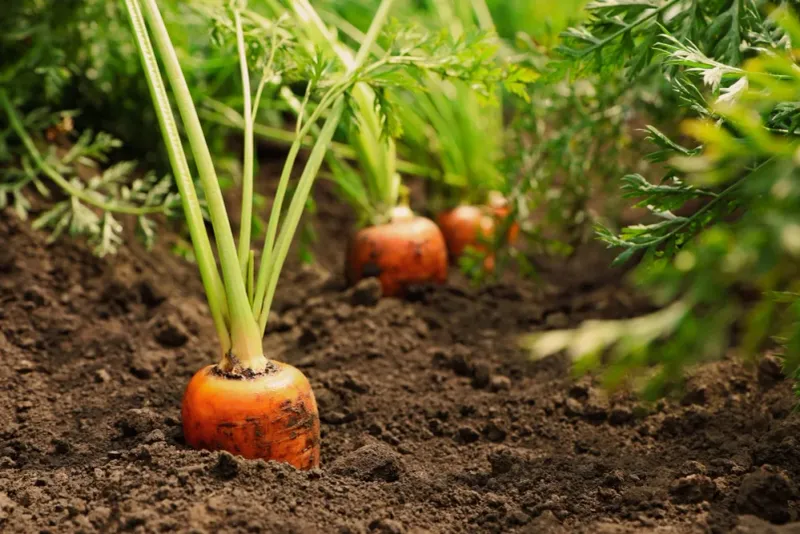
Carrots, with their vibrant orange hue, are a nutritional powerhouse. They’re often enjoyed in snacks and salads. However, their cultivation may involve pesticides, raising health questions.
These root vegetables absorb chemicals from the soil, potentially affecting consumer safety. Their natural sweetness doesn’t diminish such concerns.
For those cautious about pesticides, organic carrots provide a solution. This choice ensures the nutritional benefits without chemical interference. It’s a step towards healthier eating habits, valued by many families.
10. Broccoli

Broccoli, a favorite among health enthusiasts, boasts numerous benefits. Its rich nutrient profile makes it a go-to veggie. However, pesticides used in growing broccoli can leave residues that worry consumers.
Farmers face challenges with pests, leading some to use chemical interventions. These can remain on the broccoli heads, raising safety concerns.
Organic broccoli offers a cleaner choice, aligning with health-conscious values. It enables individuals to enjoy the health benefits without potential chemical exposure. Many embrace this option to support their wellness journey.

Mother of three and a primary school teacher. I’ve always loved being around children and helping them, so I chose my path as a teacher. It is sometimes hectic with three children, but I am 100 percent into it and wouldn’t change it for anything in the world.

